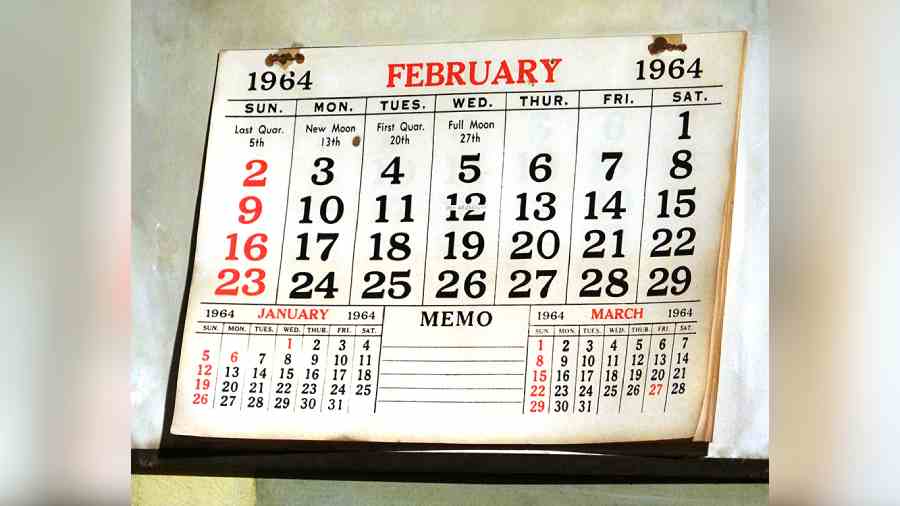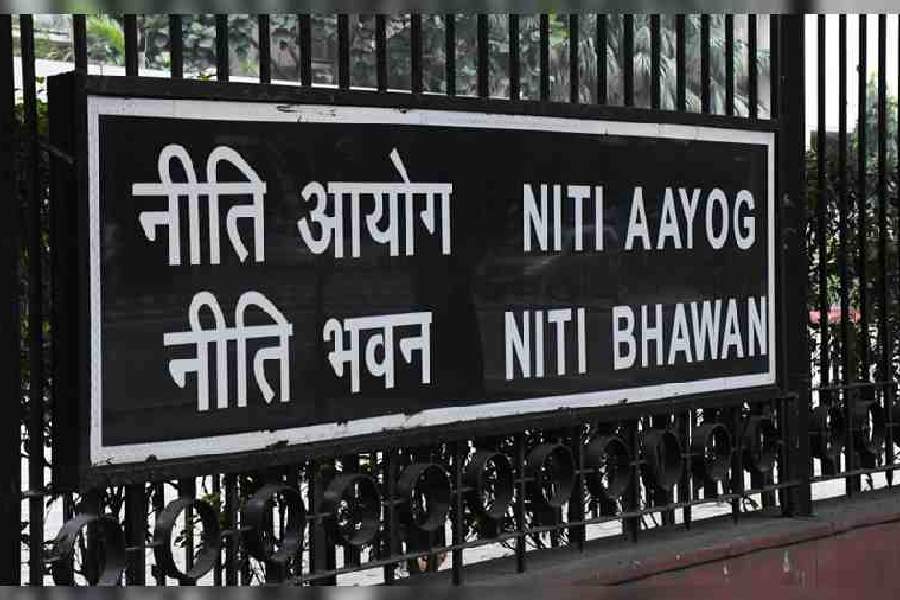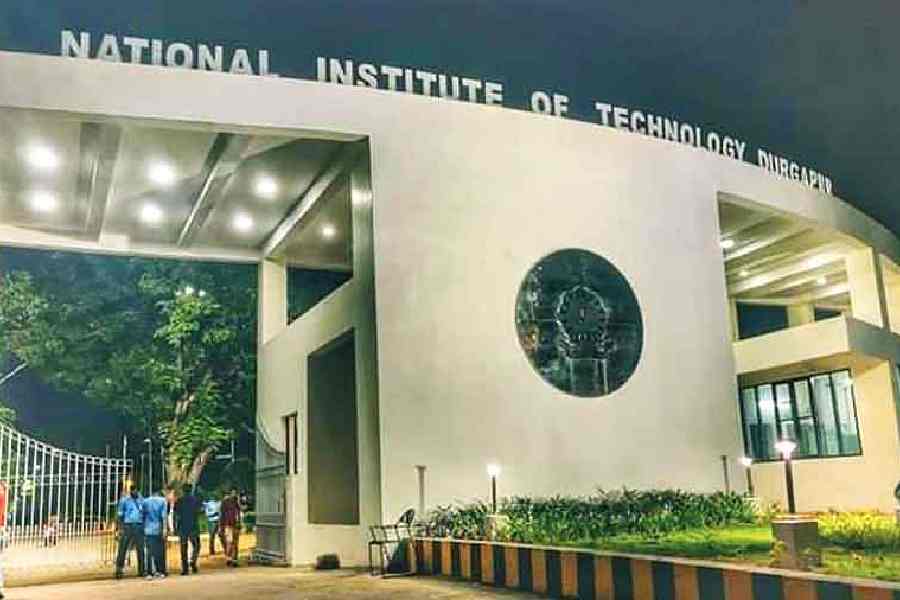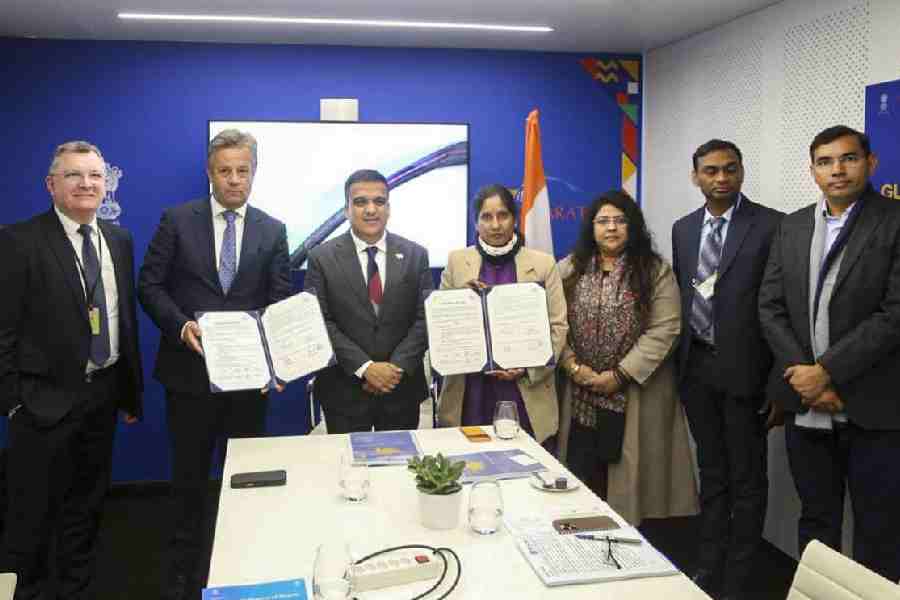Dated idea
Sir — Several traditions associated with the New Year are now things of the past. One such tradition is that of gifting calendars and diaries. January was synonymous with this activity. But with a dip in demand over the years and the economic hardships posed by the pandemic, these chroniclers of time have gradually been replaced by digital planners. Even customised calendars, which used to be a staple among small businesses, have become relics — most shopkeepers now prefer to gift pens and notepads. Perhaps this can change though. Calendars often carry the depictions of gods and goddesses. Could it be argued that more neutral themes or artwork could increase the value of calendars? After all, museums make calendar art that sells for thousands of rupees.
Sushant Chaudhry, Nagpur
Impending disaster
Sir — It is unfortunate that cracks have developed in nearly 600 houses in Joshimath in Uttarakhand’s Chamoli district owing to land subsidence (“More cracks in Joshimath, more flee”, Jan 9). This is largely the result of aggressive developmental projects and illegal constructions undertaken in the Himalayan state in recent years. It was only after protests by the locals that the district administration woke up to the impending disaster. Several government committees have, in the past, warned against carrying out heavy construction in the area. These warnings went unheeded. The Garhwal range is one of the most vulnerable regions in the country and has witnessed several calamities like the 2013 Uttarakhand floods and the 2021 Chamoli disaster. The authorities must recalibrate development strategies in the face of severe ecological challenges.
Khokan Das, Calcutta
Sir — Landslides caused by the excessive digging of the earth for a tunnel project by the National Thermal Power Corporation have led to land subsidence in Joshimath. This is a man-made disaster. Unbridled developmental work has been carried out in the area without adequate planning. It must be noted that the tunnelling work for the East-West Metro project in Calcutta had also caused cracks in several houses located in the vicinity. These incidents highlight the need for a comprehensive impact assessment before green-lighting projects.
Sourav Malik, South 24 Parganas
Dubious remark
Sir — The governor of Tamil Nadu, R.N. Ravi, recently suggested that ‘Tamizhagam’ is a more appropriate name for the southern state. Ravi implied that since Tamil Nadu meant ‘Tamil country’, it created the impression that Tamilians are different from the rest of India. This is unacceptable. Ravi seems to be bent on making disparaging comments to incite regional tensions. This is unbecoming of him given his constitutional role as head of the state. The leaders of the ruling Dravida Munnetra Kazhagam have rightly slammed the governor and called him an agent of the Bharatiya Janata Party.
M.C. Vijay Shankar, Chennai
Sir — Tamil Nadu has been integral to the Dravidian identity. The proposal by the governor to change the name of the state seems insensitive. Previously, R.N. Ravi had espoused the values of sanatan dharma, which goes against the constitutional principle of equality. From the day he has taken on this gubernatorial role, Ravi has been at loggerheads with the state government, stalling several executive decisions.
Tharcius S. Fernando, Chennai
Taste of success
Sir — It is heartening that the West Bengal government’s flagship programme, Duare Sarkar, has received the ‘Platinum Icon’ at the Digital India Awards from the president, Droupadi Murmu. Launched in 2020, the welfare scheme ensures doorstep delivery of various services through camps organised at the grassroots. The overwhelming response from the common people in registering for the scheme has boosted its outreach. The Mamata Banerjee-led dispensation must be congratulated for making the welfare measure a success.
Iftekhar Ahmed, Calcutta
Great influence
Sir — In his column, “Sartorial code” (Jan 7), Sunanda K. Datta-Ray highlights India’s profound cultural influences on Southeast Asia. No other civilisation has been able to leave a similar mark on the region without the help of military intervention. The historical trade route between the Coromandel Coast and Southeast Asia powered such cultural contacts. This is evident from the traces of Sanskrit, Pali and Tamil found in several Southeast Asian languages. The impact of Indian culture is visible in other arenas as well. The sartorial choices of dhoti and lungi have been influenced by Indian culture too.
H.N. Ramakrishna, Bengaluru
Dangerous trend
Sir — The trend of parents wanting schools to provide ‘value for money’ is unfortunate (“Immeasurable wealth”, Jan 8). Parents had become a part of the virtual classroom during the pandemic. Even after schools reopened, parents have been challenging the institutions on matters of schooling. This is unwarranted. However, guardians are not the only ones to blame. The commercialisation of education has shifted the focus to result-oriented education rather than the holistic development of a student.
Kiran Agarwal, Calcutta
Sweet season
Sir — It was encouraging to learn that the drop in mercury in West Bengal will make nolen gur tastier. Sweettoothed Bengalis wait impatiently for winter to prepare various kinds of sweetmeats with good-quality nolen gur, especially during poush parbon.
Sourish Misra, Calcutta










